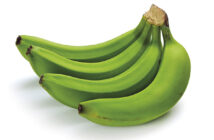Aleading New Zealand toxicologist is in two minds about applying medicinal additives to food or wine.
University of Canterbury food expert Professor Ian Shaw says the concept of adding chemicals with medicinal properties to food has been around for hundreds of year. But he says people are really just become much more acutely aware of the benefits and pitfalls.
“People are now selecting food according to the chemicals they contain. Companies are promoting the fact their food contains vitamins and other healthy elements. We’re now getting more specific about what we want to eat, Professor Shaw says.
“Is it right to add medicines to food, water and wine to mass medicate consumers? The answers are yes and no. Of course it is right to add some things.
“In New Zealand we have very low levels of iodine in the soil and environment generally because we are a volcanic nation. With not enough iodine in our food we get more goitre which means more thyroid cancer.
“So it makes a lot of sense to put iodine in food to stop that happening. Nobody would argue with that. We fortify our bread with salt which contains iodine to ensure everyone gets enough iodine.
“But at the other end of the spectrum is a chemical called resveratrol which is present in grapes and blueberries so is therefore present in tiny levels in wine.
“This chemical has been shown to have all sorts of beneficial properties such as extending life or preventing heart attacks and neurological diseases. Some companies are considering adding this to wine and creating a new market for people who would not normally drink wine but who might start drinking it feeling they may live longer. Now I am not sure that is a good idea.
“A lot of research papers say how good it is. But we are slowly starting to see other views. Some say resveratrol’s properties look a bit like the female hormone which means it could promote breast cancer. Would it? I don’t know. So to me to add that to our food would be too risky. Because we don’t yet know what the risks are.
“Seaweed contains high levels of iodine, which prevents goitre, but should iodine deficient New Zealanders be force fed seaweed or should iodine be added to our daily bread? Spina bifida is a terrible birth defect caused by a lack of folate in food, but should we force everyone to consume more folate?
“What are the negative effects of eating too much folate? Are these risks outweighed by the benefit of preventing a few spina bifida cases in New Zealand each year? Fluoride is highly toxic, but at very low doses it prevents dental caries; so, why is there so much fuss about adding fluoride to drinking water?’’





























































































